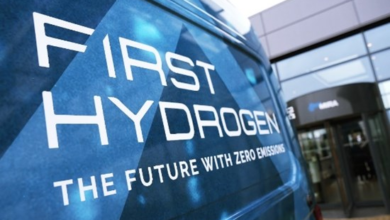Raven SR wins CEQA permit renewable hydrogen project in Northern California

Raven SR Inc. (Raven SR), a renewable fuels company, announced the unanimous approval of its California Environmental Quality Act (CEQA) permit by the Richmond City Council for Raven SR’s first organic waste-to-hydrogen bioenergy project, which will be located in Richmond, California.
This permit marks a significant step in approving the world’s first Steam/CO2 Reforming hydrogen production facility using diverted waste as a feedstock.
“We are honored that the City of Richmond unanimously approved our waste-to-hydrogen facility, setting the stage for the community to be a leader in the global hydrogen transition,” said Matt Murdock. “By diverting organic waste from Republic Services’ closed West Contra Costa Sanitary Landfill (WCCLS), this facility will produce clean hydrogen and reduce both greenhouse gases and cumulative cancer and non-cancer risks in the community. Moreover, the project will economically benefit the Richmond community by supplying local gas stations with clean, zero-carbon hydrogen fuel for fuel cell vehicles and creating new green jobs, including 100-150 construction positions.”
“The City of Richmond is excited to begin this journey into the future of green technology, a green economy, a green workforce, and a greener world,” said Eduardo Martinez. “The Raven SR project will contribute to the reduction of waste and greenhouse emissions and will employ local residents. The message that we are sending today is, Richmond is serious about addressing climate change and serious about providing solutions and alternatives to dirty jobs.”
The project is expected to divert up to 99 wet tons of green and food waste per day from Republic Services’ WCCSL into Raven SR’s non-combustion Steam/CO2 Reforming process, producing up to 2,400 metric tons of renewable hydrogen per year. Diversion of the organic waste will help fulfill California’s SB 1383 mandates, and will potentially avoid up to 7,200 metric-tons per year of CO2 emissions from the landfill. The project is expected to produce at least 60% of its own electricity by using methane from the landfill in new state-of-the-art electric generators, further reducing both the current air emissions and the need for grid power for its non-combustion process.
“Raven SR is poised to make a significant impact in reducing short-lived climate pollutants, the most damaging climate pollutants and the most urgent climate solution,” said Julia Levin. “Cutting these climate super pollutants benefits the climate right away and buys us time until fossil fuel reductions, which take decades to begin to benefit the climate, begin to take effect. Reducing methane and black carbon also provides immediate benefits to public health since these are powerful air pollutants as well.”
The Raven SR Richmond project is in the final stages of obtaining a permit from the Bay Area Air Quality Management Department (BAAQMD), which previously approved its pilot facility. Upon receiving authority to construct, the company plans to break ground this summer, with full commercial operations beginning in Q1 2024.
Off-take agreements for the hydrogen supply are in place with several companies, including project equity investors Hyzon Motors and Chevron New Energies, that plan to market the hydrogen in Bay Area and Northern California fueling stations, enabling the energy transition to zero-emission vehicles. Hyzon, a global supplier of fuel-cell electric commercial vehicles, plans to provide refueling for hydrogen fuel-cell trucks at a hydrogen hub in Richmond.
The Raven SR technology is a non-combustion thermal, chemical reductive process that converts organic waste and landfill gas to hydrogen and Fischer-Tropsch synthetic fuels. Unlike other hydrogen production technologies, it’s Steam/CO2 Reformation does not require fresh water as a feedstock and uses less than half the energy of electrolysis. The process is more efficient than conventional hydrogen production and can deliver fuel with low to negative carbon intensity. Additionally, Raven SR’s goal is to generate as much of its own power on-site as possible to reduce reliance on, and/or be independent of the grid. Its modular design provides a scalable means to locally produce renewable hydrogen and synthetic liquid fuels from local waste.
The Richmond facility is owned by Raven SR S1 LLC (Raven SR S1). Raven SR will operate the facility. Chevron New Energies, a division of Chevron U.S.A. Inc., a subsidiary of Chevron Corporation and Hyzon Motors Inc., are collaborating with Raven SR to commercialize operations. Chevron and Hyzon were among Raven SR’s initial strategic investors, along with ITOCHU, Ascent Hydrogen Fund and Samsung Ventures.
